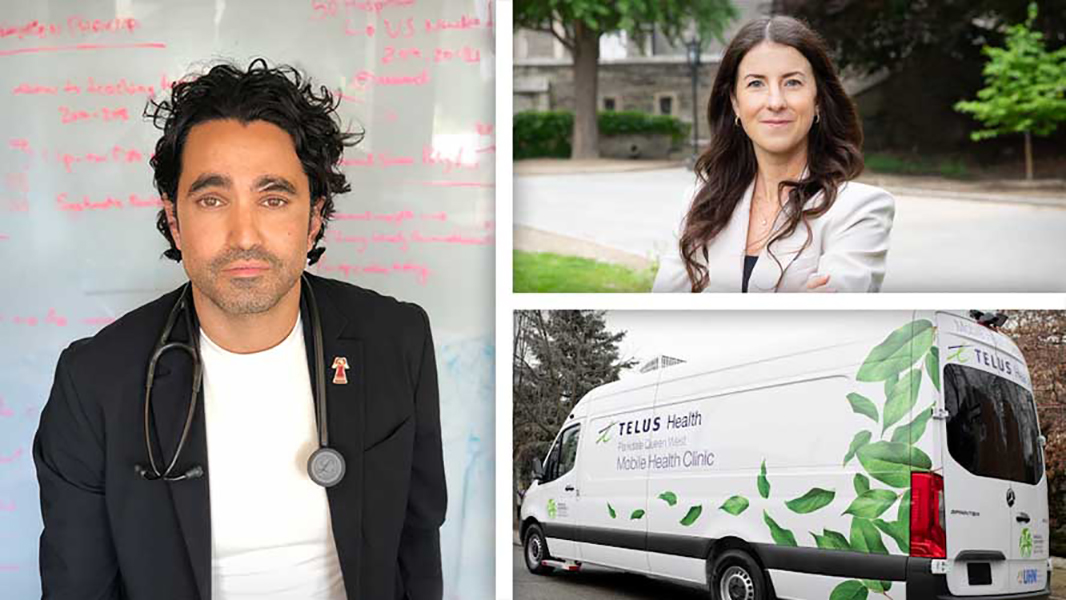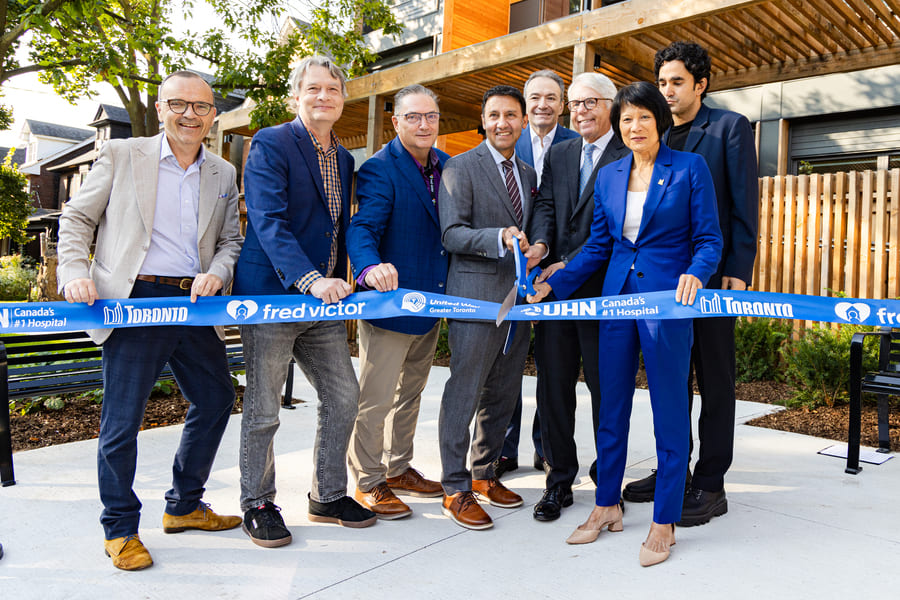
In Canada, marginalized populations face many barriers to accessing the health care they need, which can lead to poor outcomes.
Researchers at UHN’s Toronto General Hospital Research Institute and the UHN Social Medicine program have demonstrated that mobile health clinics (MHCs) — providing primary care, harm reduction and mental health services at convenient locations within a community — can alleviate these barriers to care.
Despite Canada’s universal health care system, socioeconomic factors still contribute to disparities in health outcomes. As a solution to this inequity, mobile health clinics have been deployed in cities across the country.
These clinics are designed to be present in convenient locations within communities while offering a wide range of services, including prevention, primary care, support with income assistance applications, harm reduction and mental health services.
Mobile health clinics provide care to clients who are poorly served by the traditional health care system due to financial, geographic, or cultural barriers, as well as previous negative experiences in health care settings. However, little is known about the impact of mobile health clinics in countries with universal health care such as Canada and the characteristics of the clients they serve.
In 2021, Parkdale Queen West Community Health Centre, TELUS Health for Good and UHN’s Gattuso Centre for Social Medicine partnered to launch a nurse practitioner-led, community-based mobile health clinics in Toronto.
The mobile health clinics serves approximately nine locations in downtown Toronto including shelters, community centres, high-density buildings and encampments.
To better understand the impact of mobile health clinics on the community, the research team surveyed and conducted interviews with clients after they had received care.
Most clients — 61 per cent — reported being homeless and 37 per cent said that without the mobile health clinic they would have accessed care at an Emergency Department, while 18 per cent would not have sought care at all, according to the study by senior author Dr. Andrew Boozary, a clinician-investigator at Toronto General Hospital Research Institute, Executive Director of the Social Medicine and Population Health Program at UHN, and assistant professor at the Dalla Lana School of Public Health at the University of Toronto, and first author Meghan O’Neill, former epidemiologist and evaluation specialist for the Population Health Analytics Lab and a research officer with the Dalla Lana School of Public Health.
The team also identified factors that improved care experiences and access: client-centred approaches to communication; inclusive environments; reducing barriers such as cost and transportation issues; and connecting clients to other health and social services within the community.
This work highlights how mobile health clinics help deliver care to those who face challenges accessing health care and can help inform the best ways to reach underserved communities.
Although mobile health clinics are often thought of as an alternative form of health care, these findings indicate that mobile health clinics serve as an entry point to and a connection with the health care system.
This work was supported by the Gattuso Centre for Social Medicine at UHN and UHN Foundation.

No one ever changed the world on their own but when the bright minds at UHN work together with donors we can redefine the world of health care together.


